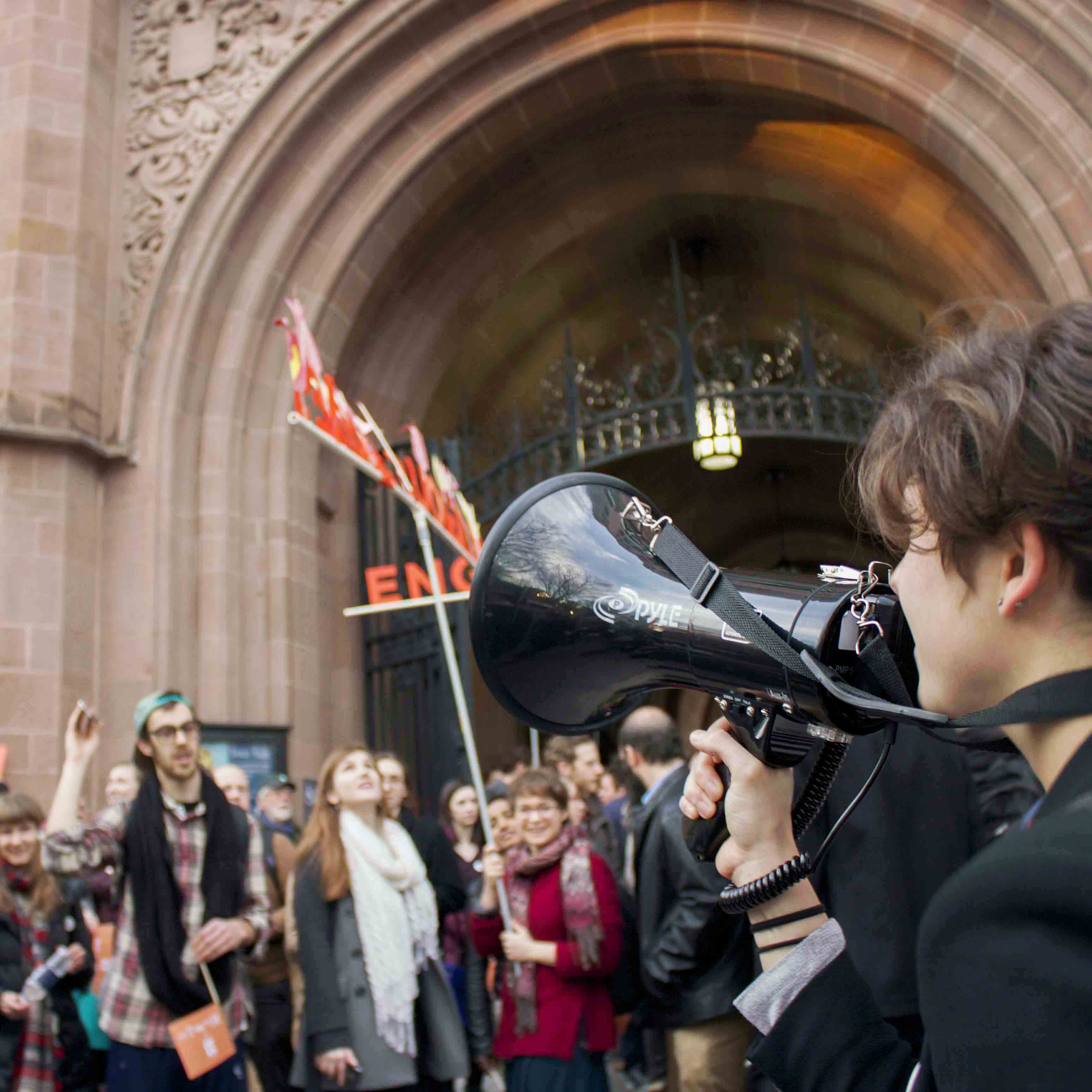
Yale Daily News
As the National Labor Relations Board moves to strip unionization rights from teaching assistants at private universities, Local 33 — which already suffered defeat in recent years after a string of highly publicized protests for recognition — is slowly gearing up for another fight.
On Sept. 23, the NLRB proposed a regulation that would reverse the Obama-era support for graduate students and exclude them from being considered employees under federal law. In an interview with the News, Local 33 co-President Lena Eckert-Erdheim GRD ’21 said her group will counter the NLRB’s proposed ruling by expressing its discontent. The proposal is currently open for public comment until late November, when it will be revisited by the board.
“We are mobilizing to fight back against this attack by the Trump administration … by submitting comments on the proposed rule during the 60-day public comment period that’s now open,” Eckert-Erdheim told the News. “We are letting the NLRB know that the work we do is work.”
The NLRB stated in the proposal that it hopes to “bring stability” to its stance on graduate students unionization, which has flip-flopped several times in previous decades. This most recent proposed rule, if implemented, would reverse a 2016 decision that classified postgraduates at private universities as employees and as matriculated students. Previous rulings in 2004 and 2000 also switched the federal government’s stance on graduate student unions.
If the ruling is finalized after the comment period, graduate and professional students at Yale — who teach courses, help in laboratories and grade papers on top of their studies — will be barred from unionizing. As of Sunday evening, 31 out of 468 comments filed to the board refer to the circumstances of graduate student unionizing University.
In an interview with the News, Ted Hamilton GRD ’22 — who teaches philosophy and literature to undergraduates — said he filed a comment to the NLRB and added that he is dismayed by the board’s proposal.
“Graduate school is long and financially taxing,” he wrote in his public comment. “I depend upon hard-won benefits such as health-care and family allowances, which would not be possible without the ability of workers to collectively represent their own interests.”
Hamilton also wrote in an email to the News that “the margins for living on a graduate stipend can be slim.”
According to University spokesperson Karen Peart, graduate and professional students spend “less than one-sixth of their time” fulfilling their teaching requirements during a six-year program. She added that students who teach receive $31,000 or more in annual stipends, do not pay tuition and receive free health care.
“Yale is deeply committed to graduate student education, and to providing its teaching fellows with the mentorship and training necessary to complete their degrees and go on to rewarding careers,” Peart wrote in an email to the News.
Dylan Davidson GRD ’25, who studies English, said during his time at Yale, he will likely be required to teach a literature and composition seminar to undergraduates, despite having an academic interest in the history of animation. In his public comment, he wrote that his teaching subject is made “purely on the University’s business needs” and argued that his status as a graduate student should not preclude him from being considered an employee, Davidson said.
In an interview with the News, Davidson said that the stipend and healthcare benefits that he receives as a student are significant and meaningful. Still, he does not “think that they negate the fact that we have an interest in — or it’s in our best interest to — organize and advocate,” Davidson added.
Davidson said he has spent his first few months at Yale attending Local 33 meetings and talking to fellow graduate students who also support collective bargaining efforts.
According to Davidson, graduate students across the nation are aiming for roughly 30,000 comments in response to the proposed regulation. Of those, Yale students’ goal is to contribute 1,000, he said.
Submitting comments is not the only action graduates students have taken as they demand unionization rights.
In 2017, eight members of Local 33 embarked on a hunger strike in front of University President Peter Salovey’s house to persuade the University to begin collective bargaining. After nearly four weeks of fasting, graduate students took to the streets and marched through New Haven in protest while the class of 2017 gathered on Old Campus for commencement.
The NLRB was founded in July 1935 by U.S. President Franklin D Roosevelt.
Valerie Pavilonis | valerie.pavilonis@yale.edu
Matt Kristoffersen | matthew.kristoffersen@yale.edu







